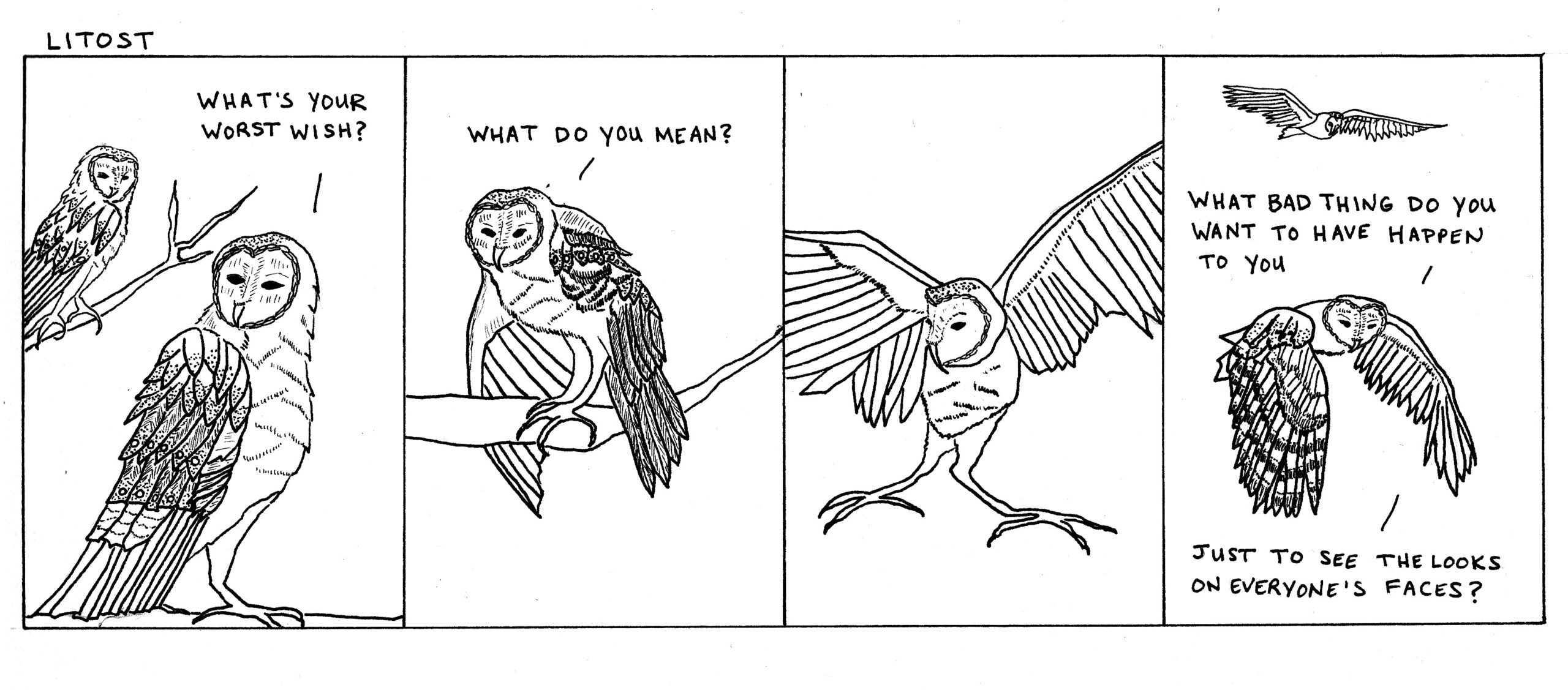In his novel The Book of Laughter and Forgetting, Milan Kundera describes a Czech word which he claims is untranslatable. (And you know, he’s probably right.) The word is litost, meaning in broad strokes “a state of torment upon by the realization of one’s inadequacy or misery” (Kundera).
Although I’m not the biggest Kundera fan*, I do love this word because it, not unlike schadenfreude, expresses something that is more a feeling than an idea. Language is most often used to signify a specific object or a clear concept, but how can I know that your litost is
the same as mine? I can’t. For me it may be a yawning gulf of blackness slowly overcome with a crackling, rageful glee. For you it might be made entirely of ice.
Kundera illustrates the term with examples, which I think are more useful: this is when you feel litost, not what you feel. And it reminds me of a game my friends and I sometimes play: what do you think you’d die of if you lived before modern medecine? (My answer: tooth abscess. And lo, I spent all this morning at the dentist having a mis-set crown chipped out of my jaw.)
This game is interesting not just because we get to describe anachronistic ailments – it’s a way of joking about our weaknesses, our flaws. There is, I think, a little bit of litost in the look on someone’s face that says Yes, that is probably what you’d die of. I’m surprised you haven’t already.
Now I feel just a little uncomfortable. Maybe you do too?
*If Kundera is the only Czech or Central European writer you’ve ever read, consider also Ivan Klíma, the late Václav Havel, Olga Tokarczuk, Andrzej Szczypiorski, Ivo Andrić, and Tadeusz Borowski, just to name a few.
